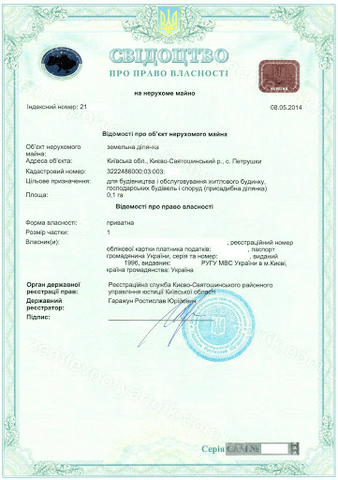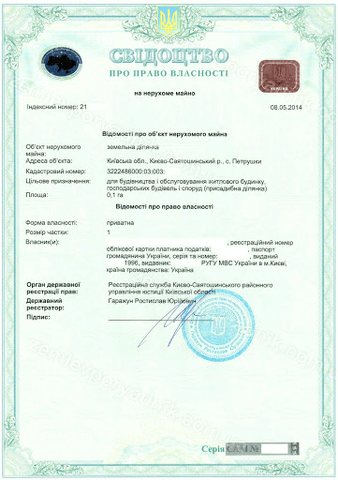Transition of Land Rights in Real Estate Transactions
Cost of services:
Reviews of our Clients
The decision-making process involved in selecting the method of alienating a land plot is a crucial step for anyone looking to purchase real estate. However, this process can be complex due to the various restrictions and requirements that vary based on the land plot's intended use.
For example, specific prohibitions exist when buying agricultural lands owned by the state or a community. Additionally, relocating to a sanitary (mountain-sanitary) protection zone requires careful consideration of the impact on your ability to use the land plot.
It’s also worth noting the limitations placed on foreign individuals and corporate entities regarding the ownership of agricultural lands. Particular land plots of special value cannot be acquired for private ownership, such as areas under natural reserves, of historical-cultural and health importance, and those with unique ecological, health, scientific, aesthetic, and historical-cultural significance.
Our clients often face challenges in planning the purchase and future use of a land plot, primarily due to overlooking specific legislative requirements or restrictions. If you intend to buy land but wish to avoid the legal complexities of land law, our firm is here to assist. We offer complete support and guidance through every step of the transaction. Our lawyers will help you identify the most appropriate approach and prepare the land plot for the potential transition of rights. We aim to ensure that you achieve your objectives smoothly and without unnecessary hurdles.
You may also like: Land Ownership Registration Process in Ukraine
Essential Considerations and Criteria for Selecting the Method of Alienation of a Land Plot
Transferring land rights during the alienation of real estate is a nuanced and critical legal procedure, encompassing several methods:
- Sale-Purchase: A prevalent method where one party sells the land plot to another in return for a payment.
- Gift: This approach involves transferring the land plot free of charge, often within familial contexts or for philanthropic purposes.
- Exchange: The land plot is alienated in return for another piece of land or different real estate property.
- Mortgage (Pledge): The land plot is provided as collateral to secure the fulfillment of certain obligations.
- Inheritance Contract: On the death of the owner, property rights are transferred to the designated inheritor.
- Lifetime Maintenance Contract: The owner relinquishes the property rights in return for the recipient's commitment to provide lifelong care and support.
- Contribution to the charter capital of legal entities.
When selecting a method for transferring land ownership, it's important to consider the following key criteria to ensure a proper and effective land rights transfer process:
- Plot Characteristics: Assess the type of land plot, its intended purpose, and legislative requirements regarding its marketability. This includes understanding the land's designation and any legal constraints on its transfer.
- Contractual Parties: Identify who the parties to the agreement are and any legal stipulations regarding them. For example, there are specific restrictions on who can own agricultural land plots.
- Methods and Terms of Payment: Determine the payment terms between the parties, including any legal requirements for cashless transactions, particularly in the case of agricultural lands, and the verification of the sources of funds.
- Tax Implications: Thoroughly review the tax implications specific to each method of land alienation, as different approaches can have varying tax consequences.
Considering these factors, parties involved in land alienation agreements can make informed choices about their methods of alienation. By doing so, they ensure adherence to legal requirements while establishing favorable conditions for all involved parties.
This underscores the importance of due diligence before proceeding with a purchase. If a specific piece of real estate inherently cannot be privately owned under any conditions, its state registration does not alter the ownership. Consequently, acquiring lands that are not transferable could potentially lead to future risks of reclamation by the original owner.
You may also like: Subdivision and Amalgamation of Land Plots: Key Stages and Requirements
Restrictions for Foreigners on Acquiring Ownership of Agricultural Land Plots in Ukraine
The moratorium on the acquisition of ownership rights to agricultural lands by foreigners, stateless individuals, and legal entities (established and registered under the law of Ukraine, but with foreigners as participants (founders) or ultimate beneficial owners) remains in force until a decision is made in a referendum.
Under this restriction, these entities are prohibited from:
- Acquiring shares in the charter capital, stocks, or memberships in legal entities (other than banks’ charter capital) that own agricultural land;
- Purchasing ownership rights to agricultural land plots.
Irrespective of the referendum outcome, a complete ban on acquiring ownership rights to agricultural lands will persist for legal entities with non-Ukrainian citizens as participants (shareholders, members) or ultimate beneficial owners. This ban includes:
- Agricultural lands of state and communal ownership;
- Agricultural lands allocated in kind (on-site) to owners of land shares (shares), located within 50 kilometers of Ukraine's state border (excluding borders passing through the sea).
Land plots intended for individual or collective gardening are not eligible for ownership acquisition by legal entities, except for horticultural societies. Instead, legal entities may lease these land plots.
Notably, the prohibition specifically applies to the sale (and other forms of alienation) of privately owned land plots designated for commercial agricultural production. This also includes land plots allocated in situ (on the ground) to owners of land shares (shares) for private peasant farming, with the restriction extending to their transfer to legal entities. However, an exception exists – such plots can be transferred via a transfer act in cases where the legal entity owner undergoes reorganization.
The Automatic Transition of Land Rights and Its Effects on Property Owners
The rights to a land plot automatically pass to the new owner of any real estate situated on that plot, in line with the principle of the indivisible legal share of the land plot and the property located on it.
It is crucial to understand that this automatic transition does not apply if the land plot was not allocated for use or owned by the previous real estate owner.
In real estate transfer agreements that include the automatic transition of land rights (under the principle "land follows the property"), the agreement itself should specifically mention the simultaneous transfer of the land plot's ownership rights.
A vital requirement for such deals is the existence of a demarcated land plot with a cadastral number. If real estate is being purchased, along with the transfer of rights to a part of the land plot, such an agreement can only be enacted after that specific part of the plot has been segregated and assigned its own cadastral number.
To address the common question of whether a real estate buyer can also become the owner of an already formed land plot that is in state or communal ownership, it's important to clarify that the automatic transfer of rights to a land plot applies only if the plot is in the private ownership of the alienator. In cases where the land plot is state or municipally owned, automatic transfer of rights does not occur. Individuals who acquire ownership of a house or structure become owners of the land plot under the same terms as the previous owner.
It's also crucial to emphasize the need for a thorough real estate audit before any purchase or sale. An interesting example from our practice, shared by a land law attorney, highlights the consequences of forgoing legal guidance:
“In a case we encountered, a land plot with three real estate structures was automatically transferred to the new owner of one of these structures, as per Article 120 of the Ukrainian Land Code. This resulted in the remaining two structures, still owned by the original owner, being situated on a land plot that was now entirely under the possession of the new owner of the third structure.”
At the audit stage, it's possible to foresee and conduct the partitioning of land plots. Our company offers complete legal support for land-related transactions, including:
- Preparing all necessary documentation for state registration;
- Conducting a thorough analysis of the land plot and its planned development before acquisition, to identify potential risks and flaws;
- Drafting and providing essential documents for the registration of land ownership, privatization of land plots, and real estate properties;
- Preparing documentation for the sale and purchase of land plots in Ukraine, as well as for changing their designated use, assigning cadastral numbers, and merging or dividing land plots.
Contact us for reliable and professional assistance with all real estate and land transaction-related matters.
You can obtain information about the cost of our legal support services for real estate transactions here.
Check out our pricing for legal services in land law here.





